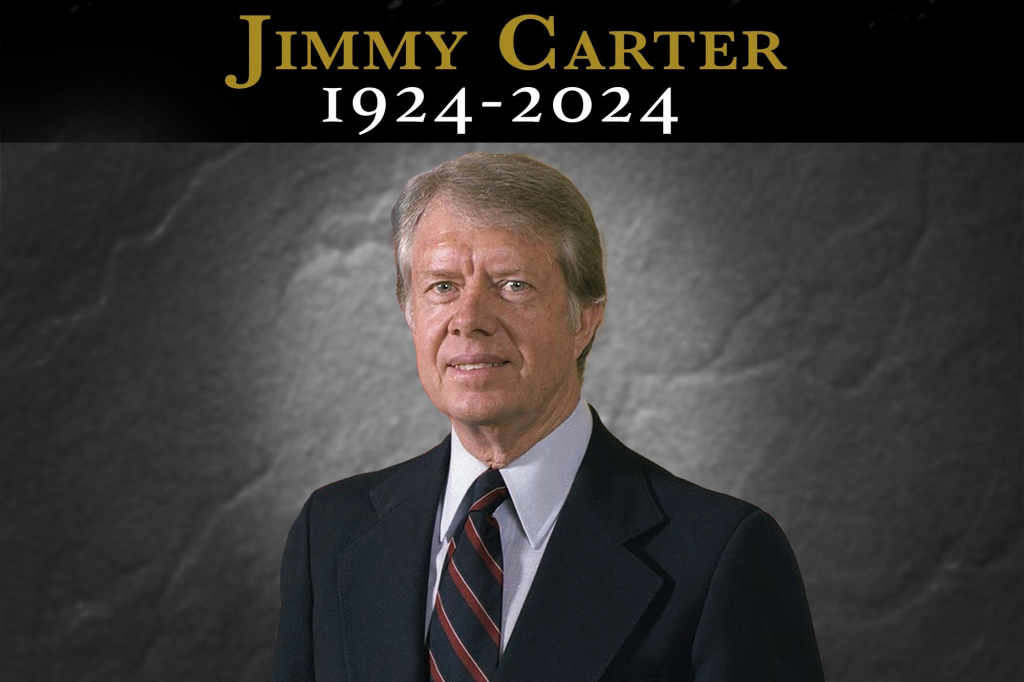
Jimmy Carter's presidential term lasted from January 20, 1977, to January 20, 1981. photo by Todd Maki
Reflecting on the legacy of President Jimmy Carter, his service to the nation, and his impact on the world allows us to appreciate his lasting contributions.
The 39th president of the United States, James Earl Carter (Jimmy Carter) passed away on December 29, 2024 at the age of 100. Carter was considered a thoughtful man who cared about his country, and his passion was shown through his presidency from 1977-1991. It had been known that Carter had been sick for a while, and had in-home hospice care since February of 2023 due to him struggling with Metastatic Melanoma, which is a type of cancer with a high mortality rate. No exact cause of death was shared for Carter; it could have been due to his struggles with his health, or just the fact that he was a man who lived to the age of 100. Before his death he had been physically challenged and couldn’t do much. His family and in-house doctor looked after him until his passing.
According to The Carter Center, Carter grew up in Plains, Georgia, and joined the submarine service after graduating from the U.S Naval Academy. After his service, he married Rosalynn Smith. Carter’s father had died in 1953 which led Carter to end his service and go back to Georgia to tend to his family’s peanut farm. He quickly was seen as a leader of the community, serving on county boards which supervised education, the hospital authority, and the library in Plains.
Carter eventually became the state senator of Georgia from 1963 to 1967, as well as the governor of Georgia from 1971 to 1975. During his time as governor, Carter upgraded the state’s educational system, created a better justice system, and promoted civil and equal rights for women and minorities. This led him to be well respected by the majority of Georgia and also sparked his interest in running for president in 1974.
Running as a Democratic candidate for president in 1974, Carter was elected to be the President of the United States in 1976. Only serving one term, Carter made a lasting impression on the nation. Several monumental events took place during the period in which Carter was president, such as the Emergency Natural Gas Act of 1977. This act was to obtain gas for vehicles as the states were going through gas shortages, with this act, he gave suggestions to congress about energy saving programs. He pitched his idea to congress 18 months after a Renewable Energy bill was passed and gave resources to save energy and electricity. Carter was also a president who did not agree with the Soviet invasion of Afghanistan. In 1980, the U.S. Olympics committee supported him by boycotting the Moscow summer Olympics. With events like this and many more, Carter left a legacy of being a good man who sought to protect his country.
In 1980, Carter ran against Ronald Reagan and lost by 49 electoral votes. However, this did not stop Carter from looking after his county. As mentioned in the White House Historical Association, he continued to be a political figure and established the Carter Center, which accomplished a multitude of things before Carter’s death. One of the huge accomplishments that the Carter Center made was their involvement in ridding the states of the stigma against people with mental illnesses, and advanced efforts to improve mental health of all people.
Based on his accomplishments and passion for the job, Carter left a lasting impression. He will be remembered as the 39th president and a large political figure that brought great ideas and achievements. The remembrance of a father, husband, son, and president will remain a part of this country’s history.